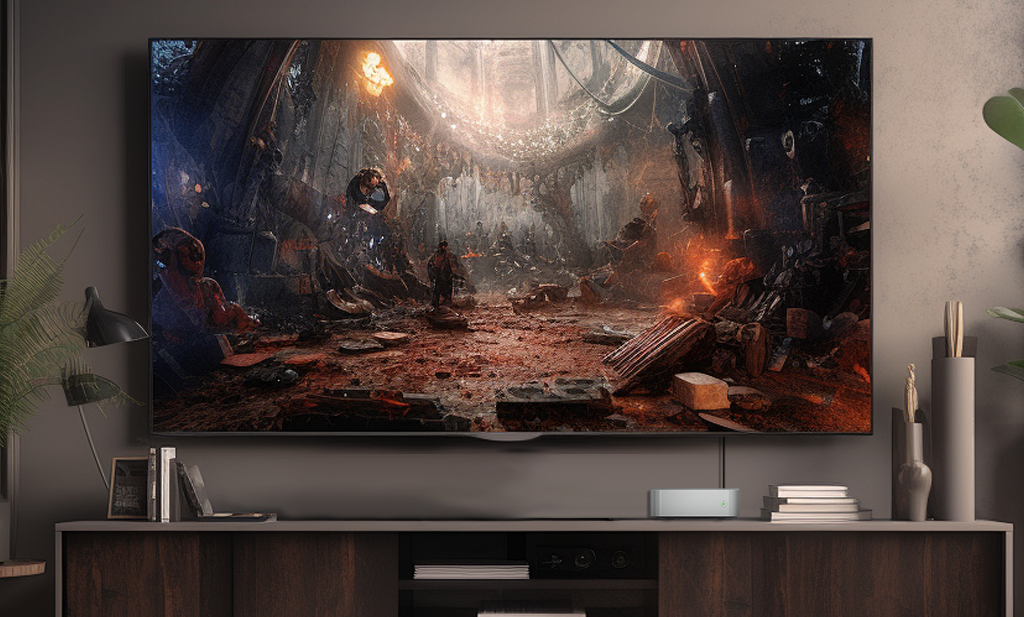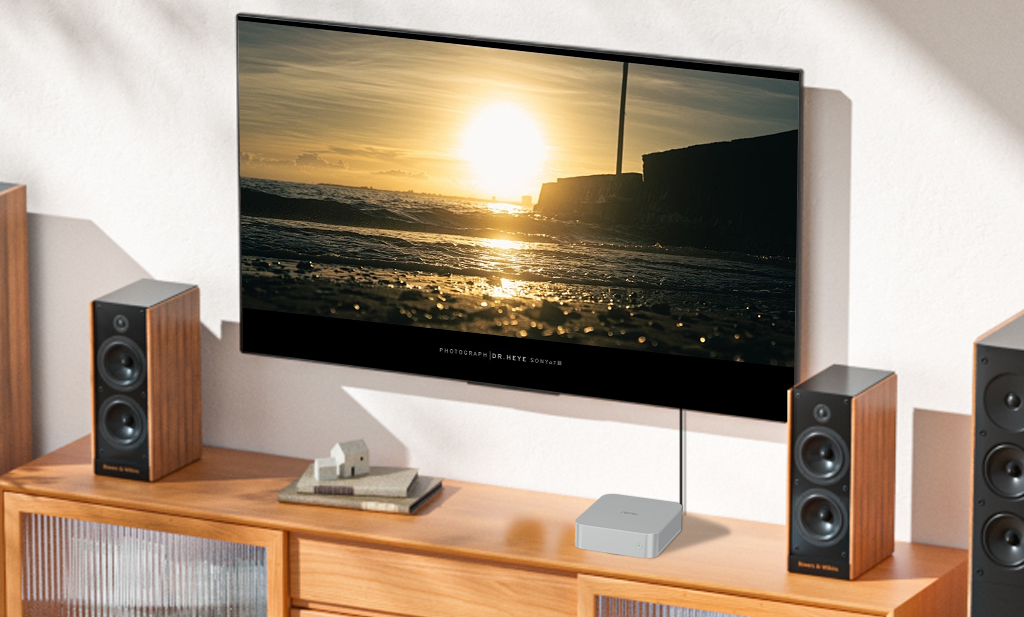Network-attached storage has many benefits over Cloud storage. These benefits help many people decide to set up their own home NAS.
When people set up their own home NAS, it keeps their data safe and accessible. After deciding to go for a DIY NAS setup, the next big question is: Which operating system is right for your home DIY NAS? Which TrueNAS edition should you choose—TrueNAS Core or TrueNAS Scale?
Both are powerful, open-source systems made by iXsystems. They work differently with the aim of helping different types of users. If you're building a home DIY NAS and wondering which edition suits your needs best, this guide will break it down in a simple way.
Plus, we'll introduce the Aiffro K100 All-Flash NAS—a mini, powerful, and affordable NAS box that works perfectly with both versions. It's an ideal example of a DIY NAS that fits well into modern home setups.
What Is a DIY NAS?
A DIY NAS is a custom-built storage device you create yourself using hardware like a mini PC or NAS box and an open-source operating system like TrueNAS. It lets you:
- Store and access files from any device on your network
- Back up important documents, photos, and videos
- Run services like media streaming or cloud storage
- Host virtual machines and software containers (depending on OS)
DIY NAS setups are usually more affordable than prebuilt solutions and offer more control and flexibility.
TrueNAS Core and TrueNAS Scale
TrueNAS Core is Great for Traditional Storage Needs
TrueNAS Core is the original version of TrueNAS and is based on FreeBSD. People used it for a long time, and it is famous for its stability and performance. If your goal is simple and reliable file storage and its backups, it efficiently handles all these things. For basic plugins like Plex or Nextcloud, this version is a solid choice.
Features of TrueNAS Core:
- Built on FreeBSD (a Unix-based system)
- Uses the powerful ZFS file system
- Offers traditional file sharing protocols like SMB, NFS, and AFP
- Comes with a plugin system to install apps like Plex, Transmission, and more
- Supports snapshots, replication, and encryption
- Lower system requirements
It’s a good pick if you are looking for a system that just works and doesn’t need frequent updates or new experimental features.
Pros:
- Stable and time-tested
- Lightweight and efficient
- Wide community support
- Less prone to bugs
Cons:
- Limited Docker support (jails system is different)
- No Kubernetes
- Not ideal for heavy container-based tasks
TrueNAS Scale is Built for More Than Just Storage
TrueNAS Scale is the newer edition and is based on Debian Linux. It’s designed not only for storage but also for modern workloads like virtualization and container applications. It’s great if you want to do more than just store files—like running Docker apps or even hosting virtual machines at home.
Features of TrueNAS Scale:
- Based on Linux (Debian)
- Full Docker and Kubernetes support for running containers
- Built-in VM support with better resource control
- Great for media servers, home automation, and tech labs
- Wider hardware compatibility
- Still uses ZFS for storage reliability
TrueNAS Scale is better for users who like to experiment, use Docker apps, or want to run multiple services from one NAS.
Pros:
- Great for running apps in containers
- Active development and future-focused
- Better for tech-savvy users
Cons:
- Newer, so it might have bugs or missing features
- Slightly heavier on system resources
Which One Should You Choose for Home Use?
Home use has different requirements, which is why it’s important to check which TrueNAS edition works best in this scenario.
Choose TrueNAS Core if:
- You’re a beginner and want a stable, simple NAS
- Your main goal is file storage, backup, or media streaming
- You don’t want to deal with containers or virtual machines
- You want to set it up once and not touch it often
Choose TrueNAS Scale if you:
- Like working with Docker containers
- want to run multiple apps and virtual machines
- Enjoy testing new features and updates
- Are you building a home lab or tech-focused NAS
Both versions are free and can be installed on the same type of hardware. The only difference is in the way they operate and what they allow you to do.
TrueNAS Scale or TrueNAS Core: Which One Should You Choose?
To help in your decision, I have compiled a good comparison between TrueNAS SCALE and TrueNAS Core.
|
Feature |
TrueNAS Core |
TrueNAS Scale |
|
Base OS |
FreeBSD |
Debian Linux |
|
Stability |
Very High |
High (still improving) |
|
Plugins |
Supported |
Supported (Apps system) |
|
Containers |
Limited (Jails) |
Full Docker/K8s support |
|
Virtual Machines |
Basic |
Advanced |
|
Use Case |
Home storage, backup |
Media server, lab setup, advanced use |
|
Easy to Use |
Yes |
Yes, but more technical features |
Aiffro K100 is the Perfect Mini NAS for Home DIY Builds
Now that you understand the difference between TrueNAS Core and Scale, let’s talk about a hardware option that works beautifully with both: the Aiffro K100 All-Flash NAS.
This All-flash NAS is a compact and reliable solid-state NAS device made for home users who need speed and flexibility. It’s also a great choice for anyone starting a DIY NAS project.
Main Features of the Aiffro K100:
- Processor: Intel Alder Lake N100, 4 cores, 3.4GHz (very fast for its size)
- RAM: 8GB LPDDR5 (4800MHz)
- Storage Slots: 4 x M.2 SSD (PCIe Gen3x2, 2280 form factor)
- Graphics: Intel UHD Graphics 12th Gen (useful for media tasks)
- Build Material: Aluminum alloy for heat management
- Size: Just 117 x 112 x 34 mm — very compact
-
Ports:
- 2 x USB 2.0
- 2 x USB 3.2 Type-C
- 1 x HDMI
- 1 x RJ45 (2.5GbE Ethernet)
- 1 x Type-C power input
-
OS Support: Compatible with
- TrueNAS Scale
- FreeNAS
- Windows
- Ubuntu
- CentOS
Why Aiffro K100 Works Great with Both TrueNAS Editions
The K100 is a perfect device for users who want solid performance in a small form. Whether you're planning to install TrueNAS Core or Scale, this mini NAS handles both easily.
With TrueNAS Core:
- You can set up a reliable file server for your home
- Use the SSD speed for fast access to family photos, videos, and documents
- Run media plugins like Plex without slowdowns
- Back up all your devices easily
With TrueNAS Scale:
- Run Docker containers for apps like Pi-hole, Nextcloud, etc.
- Host virtual machines for testing or remote use
- Use the 2.5Gb Ethernet to transfer large files quickly
- Set up an all-in-one smart home server
It's a truly flexible device. Its internal hardware supports advanced setups without needing a big, noisy machine.
Conclusion
TrueNAS Core and TrueNAS Scale are different in purpose to cater to different users. Which one will work better in your case depends on what purposes you can use your NAS for. A person who likes a simple, reliable system for file sharing and backups, TrueNAS Core is a better fit. But all those who are looking for a feature-rich platform that supports containers, VMs, and new tech go with TrueNAS Scale.
And when it comes to choosing the right hardware, the Aiffro K100 All-Flash NAS gives you the best of both worlds. It's a small and quiet device, with a low energy consumption feature. It provides powerful performance that is enough for anything you throw at it.
It works ideally for those who are backing up family photos or running their own Plex server. The K100, combined with the right version of TrueNAS, gives you a fast and DIY-friendly NAS solution.





Laisser un commentaire
Ce site est protégé par hCaptcha, et la Politique de confidentialité et les Conditions de service de hCaptcha s’appliquent.